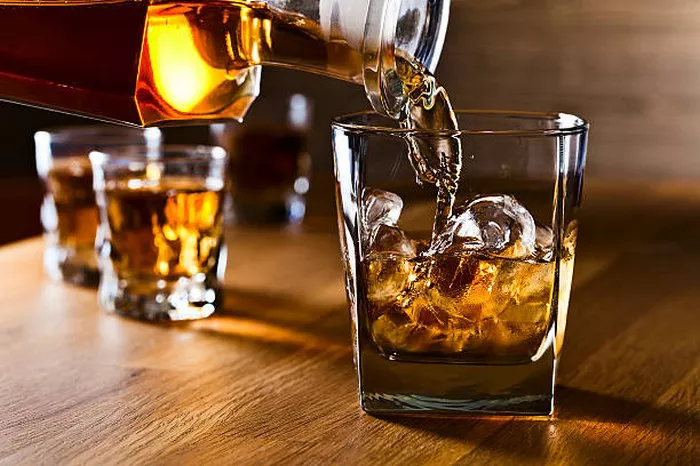Scotch and Irish whiskey stand as quintessential flag bearers of the spirits world, each with its unique history, production methods, and distinct flavors. The question often arises: Is Scotch or Irish whiskey better? A subjective query that prompts spirited debates among enthusiasts, it’s important to delve into the intricacies of these revered beverages to appreciate their individual merits.
Understanding the Origins
To determine whether Scotch or Irish whiskey is better, it’s essential to understand their origins. Scotch whisky finds its roots in Scotland, dating back centuries, with documented evidence of distillation dating to the late 15th century. On the other hand, Irish whiskey boasts an equally rich heritage, with records suggesting that monks brought the art of distillation to Ireland around the 6th century. Both spirits have deep ties to their respective regions, incorporating traditional methods that have evolved over time.
Diverse Production Methods
One of the pivotal aspects influencing the “is Scotch or Irish whiskey better” debate lies in their production methods. Scotch whisky is typically distilled twice in copper pot stills, with variations such as single malt, blended malt, single grain, and blended grain whiskies. Peat, used in some Scotch production, contributes to its distinctive smoky flavor profile, a factor often debated in comparisons with Irish whiskey.
Conversely, Irish whiskey is usually triple-distilled, imparting a smoother and lighter character compared to Scotch. Irish distillers tend to avoid peat in the malting process, resulting in a generally milder and more approachable taste profile. The use of different grains, including malted and unmalted barley, as well as corn and other grains, further adds to the diversity of Irish whiskey.
Terroir and Regional Influence
Terroir, encompassing environmental factors such as climate, water source, and geographic location, significantly impacts the flavor profile of both Scotch and Irish whiskey. Scottish distilleries, nestled in various regions like Islay, Speyside, Highland, and Lowland, each offer distinct characteristics owing to their geographical nuances. Islay whiskies, for instance, are renowned for their peaty and maritime qualities, a stark contrast to the fruity and floral notes found in Speyside expressions.
Similarly, Ireland’s diverse landscapes contribute to the unique flavors of its whiskies. The pure, soft water from Irish streams, coupled with the milder climate, contributes to the smoothness and lightness associated with many Irish whiskey expressions. The influence of terroir in shaping flavor profiles is a key consideration when comparing the two spirits.
Maturation and Ageing
Maturation plays a vital role in determining the quality and complexity of both Scotch and Irish whiskey. The aging process in oak barrels significantly impacts the final product’s taste, aroma, and overall character. Scotch whisky often matures in barrels previously used for sherry, bourbon, or other wine spirits, absorbing distinct flavors from these casks over time.
Irish whiskey, too, undergoes maturation in oak casks, although the choices of cask types may vary. The duration of aging, the type of wood, and the previous contents of the barrels contribute to the final flavor profile, allowing for a diverse range of tastes within the category.
Flavor Profiles and Tasting Notes
When evaluating whether Scotch or Irish whiskey is better, exploring the flavor profiles and tasting notes is imperative. Scotch whisky exhibits a wide spectrum of flavors, from the peaty, smoky notes of Islay malts to the honeyed sweetness of Speyside whiskies. The diversity enables enthusiasts to find expressions that align with their individual preferences, whether they favor robust, smoky whiskies or lighter, fruitier ones.
In contrast, Irish whiskey often showcases smoother, more approachable characteristics. The absence of heavy peat influence allows for a greater emphasis on the malt and grain flavors, offering a palate that’s generally perceived as more accessible to newcomers to whisky drinking.
Cultural Significance and Global Appeal
Beyond their inherent qualities, the cultural significance and global appeal of Scotch and Irish whiskey play a pivotal role in the “is Scotch or Irish whiskey better” debate. Scotch whisky has historically held a prominent position in the global market, with established brands and a reputation for excellence. Its presence in popular culture and association with refinement and tradition contribute to its enduring popularity worldwide.
However, Irish whiskey has experienced a renaissance in recent years, gaining traction among consumers seeking diversity and exploration in their whisky choices. Its reputation for smoothness, coupled with innovative approaches by distilleries, has attracted new enthusiasts to the category, expanding its global footprint.
Conclusion: Embracing Diversity in Whisky Appreciation
In conclusion, determining whether Scotch or Irish whiskey is better is subjective and often boils down to individual preferences. Both spirits offer a diverse range of flavors, production methods, and cultural significance that appeal to different palates and sensibilities.
Scotch whisky’s diversity in flavor, peat influence, and established reputation hold a special place in the hearts of many whisky enthusiasts. Simultaneously, Irish whiskey’s smoothness, lighter profile, and growing innovation cater to those seeking a milder yet equally captivating drinking experience.
Ultimately, the beauty of whisky appreciation lies in embracing the diversity and nuances offered by both Scotch and Irish whiskey. Whether savoring a peaty dram from the Scottish Highlands or enjoying the smoothness of an Irish blend, whisky enthusiasts can relish the unique qualities of each spirit, making the “is Scotch or Irish whiskey better” debate a matter of personal taste and appreciation for the artistry behind these iconic beverages.


